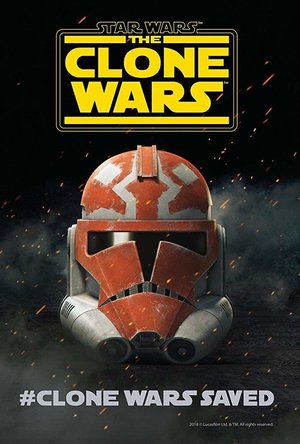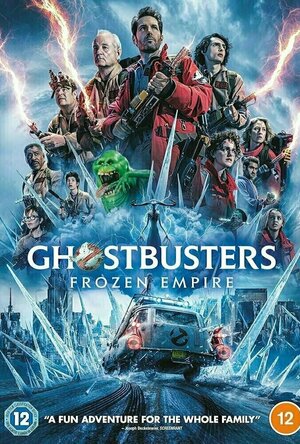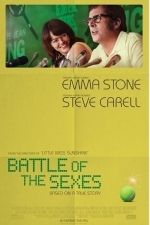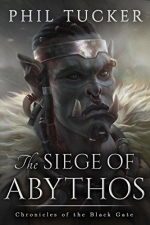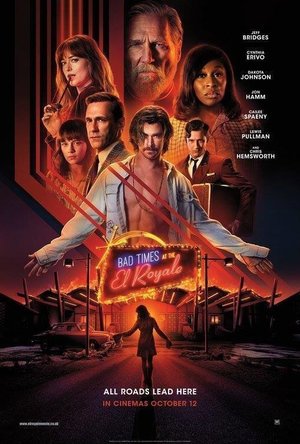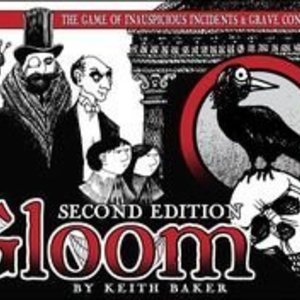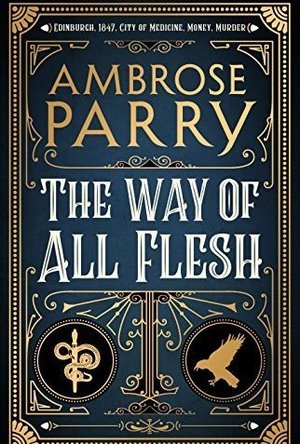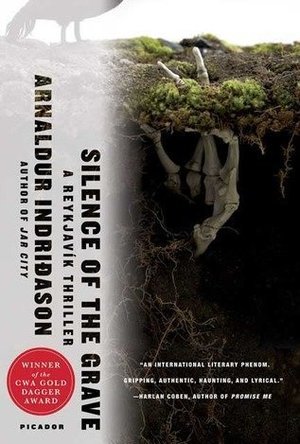Search
Search results
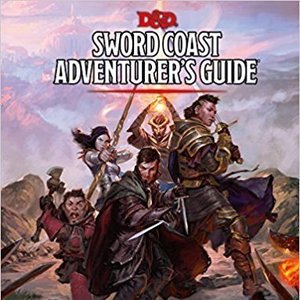
Sword Coast Adventurer's Guide (Dungeons and Dragons 5th Edition)
Tabletop Game
Get everything you need to adventure in the Forgotten Realms on the exciting Sword Coast, home to...
Starkiller_Prime (39 KP) rated Star Wars: The Clone Wars in TV
Oct 18, 2022
Star Wars: The Clone Wars
(7 Seasons)
2008-2020
Star Wars: The Clone Wars the TV show first aired on Cartoon Network in 2008. The series aired following the release of a movie by the same title. The series bridges a gap from the prequel movies Episode II: Attack of the Clones and Episode III: Revenge of the Sith. The amazing storytelling and digital animation reignited the imagination and love of thousands of Star Wars fans as well as newcomers. While the release of episodes wasn’t in chronological order later seasons; such as, Seasons 2 and 3, fill some of the story arcs already told.
The series expands on the conflict known as the Clone Wars towards the very stages of Revenge of the Sith. The series has been an all time favorite for much of the Star Wars fan base. The series was able to use multiple story arcs that answered long awaited questions from the prequel trilogy; such as, the identity of the Jedi who commissioned the clone army and the origins of Order 66.
The Clone Wars introduces new characters as well as established ones with a focus on further expanding the Star Wars Universe.
The series has major character developments for Anakin Skywalker, Asajj Ventress, Ahsoka Tano, and many more. One of the major criticisms of the prequels was the overall writing of the characters but this show further expands them and while the series is not a straight character study in most cases the characters grew with the audiences. The tone of the show shifted as the seasons progressed and as a enormous Star Wars fan I can safely say it was something that aged well. While the first few seasons where more childish once you get to season 4 a clear tone change begins to prevail.
I greatly recommend to anyone who is a Star Wars fan or new to the fan base to give the series a watch but to ensure you watch the original and prequel trilogies first to truly grasp the world building aspect and undertone.
(7 Seasons)
2008-2020
Star Wars: The Clone Wars the TV show first aired on Cartoon Network in 2008. The series aired following the release of a movie by the same title. The series bridges a gap from the prequel movies Episode II: Attack of the Clones and Episode III: Revenge of the Sith. The amazing storytelling and digital animation reignited the imagination and love of thousands of Star Wars fans as well as newcomers. While the release of episodes wasn’t in chronological order later seasons; such as, Seasons 2 and 3, fill some of the story arcs already told.
The series expands on the conflict known as the Clone Wars towards the very stages of Revenge of the Sith. The series has been an all time favorite for much of the Star Wars fan base. The series was able to use multiple story arcs that answered long awaited questions from the prequel trilogy; such as, the identity of the Jedi who commissioned the clone army and the origins of Order 66.
The Clone Wars introduces new characters as well as established ones with a focus on further expanding the Star Wars Universe.
The series has major character developments for Anakin Skywalker, Asajj Ventress, Ahsoka Tano, and many more. One of the major criticisms of the prequels was the overall writing of the characters but this show further expands them and while the series is not a straight character study in most cases the characters grew with the audiences. The tone of the show shifted as the seasons progressed and as a enormous Star Wars fan I can safely say it was something that aged well. While the first few seasons where more childish once you get to season 4 a clear tone change begins to prevail.
I greatly recommend to anyone who is a Star Wars fan or new to the fan base to give the series a watch but to ensure you watch the original and prequel trilogies first to truly grasp the world building aspect and undertone.
DaveySmithy (107 KP) rated Ghostbusters: Frozen Empire (2024) in Movies
Dec 4, 2024 (Updated Dec 4, 2024)
Fun moments
I went into Ghostbusters: Frozen Empire (2024) hoping it would build on the promise of Ghostbusters: Afterlife while carving out its own icy identity. Unfortunately, while the film has its moments of charm and spectacle, it left me feeling cold overall—pun intended.
The premise is intriguing: a mysterious, apocalyptic winter descending on New York City, with the Ghostbusters tasked to save the day. The visuals are striking—snow-covered cityscapes and frost-bitten ghosts make for some memorable scenes. The effects team clearly had a blast imagining what a frozen supernatural invasion would look like, and the frosty atmosphere feels like a fresh twist for the franchise.
The returning cast, especially Paul Rudd and Carrie Coon, are as likable as ever, but they’re not given much to do beyond reacting to the chaos. The younger characters, led by Mckenna Grace, are still charming, but the novelty of their “kid Ghostbusters” dynamic is starting to wear thin. The humor is hit-or-miss; while there are a few clever lines and fun moments, some of the jokes feel too forced, as though the film is trying too hard to mimic the original’s effortless wit.
One of the biggest disappointments for me was the pacing. The first half of the movie drags, spending too much time on exposition and setup without giving us the action or scares we came for. When the ghost-busting finally ramps up, it’s exciting, but it feels rushed and formulaic. The climactic battle is visually impressive but lacks emotional weight, relying more on spectacle than storytelling.
I also couldn’t help but feel that Frozen Empire leans too heavily on nostalgia. The callbacks to the original movies are fun at first, but they start to feel like a crutch, reminding us of the franchise’s glory days instead of moving it forward in a meaningful way.
Overall, Ghostbusters: Frozen Empire is a decent popcorn flick with some cool visuals and a few laughs, but it doesn’t live up to the potential of its concept or its legacy. It’s a 6/10 for me—fun in the moment, but not particularly memorable.
The premise is intriguing: a mysterious, apocalyptic winter descending on New York City, with the Ghostbusters tasked to save the day. The visuals are striking—snow-covered cityscapes and frost-bitten ghosts make for some memorable scenes. The effects team clearly had a blast imagining what a frozen supernatural invasion would look like, and the frosty atmosphere feels like a fresh twist for the franchise.
The returning cast, especially Paul Rudd and Carrie Coon, are as likable as ever, but they’re not given much to do beyond reacting to the chaos. The younger characters, led by Mckenna Grace, are still charming, but the novelty of their “kid Ghostbusters” dynamic is starting to wear thin. The humor is hit-or-miss; while there are a few clever lines and fun moments, some of the jokes feel too forced, as though the film is trying too hard to mimic the original’s effortless wit.
One of the biggest disappointments for me was the pacing. The first half of the movie drags, spending too much time on exposition and setup without giving us the action or scares we came for. When the ghost-busting finally ramps up, it’s exciting, but it feels rushed and formulaic. The climactic battle is visually impressive but lacks emotional weight, relying more on spectacle than storytelling.
I also couldn’t help but feel that Frozen Empire leans too heavily on nostalgia. The callbacks to the original movies are fun at first, but they start to feel like a crutch, reminding us of the franchise’s glory days instead of moving it forward in a meaningful way.
Overall, Ghostbusters: Frozen Empire is a decent popcorn flick with some cool visuals and a few laughs, but it doesn’t live up to the potential of its concept or its legacy. It’s a 6/10 for me—fun in the moment, but not particularly memorable.
Steven Sklansky (231 KP) rated Battle of the Sexes (2016) in Movies
Sep 26, 2017
Good storytelling (2 more)
Amazing Cast
Tennis shots were done very well
Sports with a hint of romance
This is another sports movie I had no knowledge of going in to and I watch a lot of sports. Tennis is one that I play more then I follow. Sometimes it is fun to watch a tennis match or 2 on tv but not all the time. This match though would have be amazing to see and live through. The story of Billy Jean King is like any other women making history by doing something great in the 70's. It has been told several times using different backgrounds. The big difference with this movie though is they did not overly portray her as the victim being driven down by the man. She always had her head held high and new she could win. You never really felt sad for her during the course of the movie. She had a goal set forth and took it head on.
This movie had a story to tell and like most Based on True Story movies they add way to much drama. This movie was the opposite. It told the story from her perspective and Bobby's perspective and really kept unnecessary drama out of it. The biggest drama points was Billy's female lover. Some of it felt way over the top and you just knew what was coming. I don't mind gay couples in movies, but what I don't like is if it feels forced on to screen just for the sake of adding it. This was part of her story, just put it in there, you don't have to tease the audience that it is going to happen.
The sports part of this movie was my favorite. The back at forth on the court felt real. Which is a good thing because you never want to see look fake. There were very few cuts during the action sequences which means they were really playing tennis, unless they were professionals dressed like them. I would not be disappointed if that was the case, but it would be great if it was the real actors doing it.
All in all this was a fantastic and think everyone, men (from the 70's and earlier) and women should go and see this movie. If you know the story already you may not like it as much but see it anyway.
This movie had a story to tell and like most Based on True Story movies they add way to much drama. This movie was the opposite. It told the story from her perspective and Bobby's perspective and really kept unnecessary drama out of it. The biggest drama points was Billy's female lover. Some of it felt way over the top and you just knew what was coming. I don't mind gay couples in movies, but what I don't like is if it feels forced on to screen just for the sake of adding it. This was part of her story, just put it in there, you don't have to tease the audience that it is going to happen.
The sports part of this movie was my favorite. The back at forth on the court felt real. Which is a good thing because you never want to see look fake. There were very few cuts during the action sequences which means they were really playing tennis, unless they were professionals dressed like them. I would not be disappointed if that was the case, but it would be great if it was the real actors doing it.
All in all this was a fantastic and think everyone, men (from the 70's and earlier) and women should go and see this movie. If you know the story already you may not like it as much but see it anyway.
Ross (3284 KP) rated The Siege of Abythos in Books
Nov 7, 2017
Poetry battle (2 more)
Poetry battle
Poetry battle
The third instalment in the Chronicles of the Black Gate series is the biggest yet, in terms of page count. The story follows the same PoV characters as previous books but their adventures are now covering so much more of the world and the storyline is becoming quite entangled.
Tharok's attempts to unite the orc-like kragh tribes and invade the human world continue, meanwhile Lady Iskra seeks to rescue her son and take revenge on the Ascendant's empire.
This book covers a lot more political debate and intrigue than the previous two, with prolonged discussion of who should be invaded, and what should be done thereafter. While this is very much a necessity in such an epic tale I felt it was somewhat laboured at times.
I very nearly gave up on this book at one point - where the portly magister Audsley (who has three demons lurking in his soul) was seeking to inveigle his way into the upper echelons of the empire, most of this storytelling centred around the colour of robes to wear, the type and colour of paper to use in sending letters and reciting poetry. Again this was very much laboured but bearable, until it looked like we were heading for what can only be described as a poetry battle, where Audsley (coached by one of his demons) was set to take on a senior government official's poetry representative in a battle of wits to see how would curry favour in the empire.
That's right: a poetry battle.
Think Philip Larkin in 8 Mile.
Will the real Slim Shakespeare please stand up.
Kanye Wordsworth.
NWA (Novelists with Assonance)
At this point I very nearly gave up. Thankfully, so did Audsley and the contest ended abruptly as he refused to let his demon take control of him. Phew. Disaster avoided. If this had been allowed to continue it would have made Tom Bombadil look like a critical plot point.
Other than Audsley's chapters (which in the previous book had been a highlight) the book does roll along at a reasonable pace and there is just about enough action to keep the interest, particularly in the last 100 or so pages.
All in all, a good read and a turning point for the series as a whole, but a lot of nonsense could have been removed, (Edgar Allan) Poe Shizzle.
Tharok's attempts to unite the orc-like kragh tribes and invade the human world continue, meanwhile Lady Iskra seeks to rescue her son and take revenge on the Ascendant's empire.
This book covers a lot more political debate and intrigue than the previous two, with prolonged discussion of who should be invaded, and what should be done thereafter. While this is very much a necessity in such an epic tale I felt it was somewhat laboured at times.
I very nearly gave up on this book at one point - where the portly magister Audsley (who has three demons lurking in his soul) was seeking to inveigle his way into the upper echelons of the empire, most of this storytelling centred around the colour of robes to wear, the type and colour of paper to use in sending letters and reciting poetry. Again this was very much laboured but bearable, until it looked like we were heading for what can only be described as a poetry battle, where Audsley (coached by one of his demons) was set to take on a senior government official's poetry representative in a battle of wits to see how would curry favour in the empire.
That's right: a poetry battle.
Think Philip Larkin in 8 Mile.
Will the real Slim Shakespeare please stand up.
Kanye Wordsworth.
NWA (Novelists with Assonance)
At this point I very nearly gave up. Thankfully, so did Audsley and the contest ended abruptly as he refused to let his demon take control of him. Phew. Disaster avoided. If this had been allowed to continue it would have made Tom Bombadil look like a critical plot point.
Other than Audsley's chapters (which in the previous book had been a highlight) the book does roll along at a reasonable pace and there is just about enough action to keep the interest, particularly in the last 100 or so pages.
All in all, a good read and a turning point for the series as a whole, but a lot of nonsense could have been removed, (Edgar Allan) Poe Shizzle.
BankofMarquis (1832 KP) rated Bad Times at the El Royale (2018) in Movies
Feb 6, 2019
Check Into the El Royale, You'll Be Glad You Did
BAD TIMES AT THE EL ROYALE is a bloody movie about bloody people doing bloody things at a bloody hotel.
It's also bloody good.
Showing the same original style and panache that I have come to expect from Director/Writer Drew Goddard (THE CABIN IN THE WOODS), BAD TIMES...follows the storytelling device of a Quentin Tarantino flick like PULP FICTION or THE HATEFUL EIGHT in that it follows a seemingly disparate group of people - each with their own story - who's lives intersect.
Goddard's reputation has, obviously, preceded him as on the surface this film looks like a "B" flick filled with gore and violence, but in Goddard's hands - and with some strong acting talent and VERY strong production qualities (the sets, costumes and music help tell the story), this film is elevated to something much more than a "B" flick.
Jeff Bridges (HELL AND HIGH WATER) stars (at least in one storyline) as a mysterious Priest who shows up at the El Royale for some reason - and it's not to change the Bibles in the rooms. He is joined in the lobby at check-in by a lounge singer played by Cynthia Ervino (WIDOWS), vacuum cleaner salesman portrayed by John Hamm (BABY DRIVER) and by a mystery women played by Dakota Johnson (50 SHADES...) - all have secrets to hide and through flashbacks and chance encounters, their stories erupt on each other. And erupt they do when into the mix comes charismatic, mostly shirtless Cult Leader Billy Lee (Chris Hemsworth) and his cult followers.
Goddard orchestrates this group of strong actors well, giving each character/actor moments to shine and play off each other. The dialogue, while not at a Tarantino level, was interesting and intriguing as much as what was NOT said then what WAS said.
But, make no mistake about it, this is an action movie - and action there is. Bodies, bullets and blood start flying as soon as these characters collide at the El Royale and bad times happen, for sure.
But, for me, this was a GOOD TIME AT THE EL ROYALE. If you like Pulp Fiction, Baby Driver, Hell and High Water or John Wick, then you'll like this flick. Check in to the El Royale, you'll be glad you did.
Letter Grade: A-
8 stars (out of 10) and you can take that to the Bank (ofMarquis)
It's also bloody good.
Showing the same original style and panache that I have come to expect from Director/Writer Drew Goddard (THE CABIN IN THE WOODS), BAD TIMES...follows the storytelling device of a Quentin Tarantino flick like PULP FICTION or THE HATEFUL EIGHT in that it follows a seemingly disparate group of people - each with their own story - who's lives intersect.
Goddard's reputation has, obviously, preceded him as on the surface this film looks like a "B" flick filled with gore and violence, but in Goddard's hands - and with some strong acting talent and VERY strong production qualities (the sets, costumes and music help tell the story), this film is elevated to something much more than a "B" flick.
Jeff Bridges (HELL AND HIGH WATER) stars (at least in one storyline) as a mysterious Priest who shows up at the El Royale for some reason - and it's not to change the Bibles in the rooms. He is joined in the lobby at check-in by a lounge singer played by Cynthia Ervino (WIDOWS), vacuum cleaner salesman portrayed by John Hamm (BABY DRIVER) and by a mystery women played by Dakota Johnson (50 SHADES...) - all have secrets to hide and through flashbacks and chance encounters, their stories erupt on each other. And erupt they do when into the mix comes charismatic, mostly shirtless Cult Leader Billy Lee (Chris Hemsworth) and his cult followers.
Goddard orchestrates this group of strong actors well, giving each character/actor moments to shine and play off each other. The dialogue, while not at a Tarantino level, was interesting and intriguing as much as what was NOT said then what WAS said.
But, make no mistake about it, this is an action movie - and action there is. Bodies, bullets and blood start flying as soon as these characters collide at the El Royale and bad times happen, for sure.
But, for me, this was a GOOD TIME AT THE EL ROYALE. If you like Pulp Fiction, Baby Driver, Hell and High Water or John Wick, then you'll like this flick. Check in to the El Royale, you'll be glad you did.
Letter Grade: A-
8 stars (out of 10) and you can take that to the Bank (ofMarquis)
Rikki Hammond (33 KP) rated Gloom in Tabletop Games
May 27, 2019
Unique concept and theme (1 more)
Plays well with all player counts
Really needs the right group of people to play it (1 more)
The theme can put some people off
A unique card game that is marred by it's own concept
I will come out and say this now: Gloom won't be for everyone. It's definitely a unique game, which can sadly be marred by it's own ideas.
The game revolves around each player choosing one of five families, and your goal is to make them as miserable as possible, before killing them in a wacky and gruesome way.
The way you do this is by placing cards on top of each family member, which will give them negative happiness points. You can also place cards on other players members to give them positive happiness points, which ironically, are bad. Once you feel you've accrued enough negative points, you can kill them outright, removing them from the game. Some cards may have a symbol on them, which can add bonus points if a certain kill card is played on them in time, and every card has a little wording on the bottom, that tells a story of the grisly fates that await your family members. One person could be hounded by ferrets before falling down a well, or maybe excluded from a celebration before being mauled by bears.
Once all five of one players family members are dead, the game ends, and whoever has the most total negative points at the end wins.
Gloom is a pretty cool looki g game, as all the cards are transparent, and when cards are laid on top of each other, it can hide certain pieces of the card underneath it. The main draw of the game is the storytelling aspect of it, seeing how each family member is going to meet their death, and unwinding a story based off that.
Sadly, take this aspect away from it, and the game basically boils down to players placing cards on top of others until someone ends the game by killing all their characters, which can actually be a little boring in my opinion.
If you can find the right people to play this with, Gloom can be a lot of fun, but more often than not, this isn't the case, and despite the cool concept and looks, it can fall rather flat.
The game revolves around each player choosing one of five families, and your goal is to make them as miserable as possible, before killing them in a wacky and gruesome way.
The way you do this is by placing cards on top of each family member, which will give them negative happiness points. You can also place cards on other players members to give them positive happiness points, which ironically, are bad. Once you feel you've accrued enough negative points, you can kill them outright, removing them from the game. Some cards may have a symbol on them, which can add bonus points if a certain kill card is played on them in time, and every card has a little wording on the bottom, that tells a story of the grisly fates that await your family members. One person could be hounded by ferrets before falling down a well, or maybe excluded from a celebration before being mauled by bears.
Once all five of one players family members are dead, the game ends, and whoever has the most total negative points at the end wins.
Gloom is a pretty cool looki g game, as all the cards are transparent, and when cards are laid on top of each other, it can hide certain pieces of the card underneath it. The main draw of the game is the storytelling aspect of it, seeing how each family member is going to meet their death, and unwinding a story based off that.
Sadly, take this aspect away from it, and the game basically boils down to players placing cards on top of others until someone ends the game by killing all their characters, which can actually be a little boring in my opinion.
If you can find the right people to play this with, Gloom can be a lot of fun, but more often than not, this isn't the case, and despite the cool concept and looks, it can fall rather flat.
Ross (3284 KP) rated The Way of All Flesh in Books
May 31, 2018
Excellent gripping period thriller set in Edinburgh's medical revolution
This tale of murder takes place in mid 19th century Edinburgh, where the city is at the forefront of the world's advances in medicine - both medical practices and procedures and also drugs and anaesthetics. Many nights are spent with some of the city's top surgeons sitting round the dinner table in the post-prandial slumber sampling various substances looking to find the perfect anaesthetic.
Will Raven, a recently qualified doctor, starts a new job as apprentice to Edinburgh's pre-eminent midwifery expert, Dr James Young Simpson. But he has recently found the dead body of a female friend and starts to investigate the mysterious circumstances of her demise.
The book takes several strands: we have the true history of Edinburgh's medical revolution where doctors like Simpson vied to get the job done but also find better ways to do it for their patients, we have the murder mystery angle, we have the capable and frustrated women who are refused to even attempt to do jobs they are clearly able to do, and we have the class system in full evidence and while many go along with it, some people like Simpson try to get past this and make their households more inclusive for all.
The threads are all interwoven brilliantly and combine to give a story that is both thrilling and interesting.
Having read a lot of Chris Brookmyre, I had high expectations for his storytelling and these were more than met with a brilliantly paced and enjoyable page-turner. I believe writing with his wife has helped tone down the language a little and the tone of the dialogue is very different to his previous work.
My one gripe would be that the climax of the story was a little laboured, with every single event, decision and twist explained numerous times from different perspectives. Given I had spotted a number of hints quite early on and knew who the perpetrator was, and was happy to assume certain things had happened, I didn't feel the need to have this confirmed at length in great detail.
Otherwise an excellent book and the start of a new series that I will be avidly waiting for the next instalment of.
Will Raven, a recently qualified doctor, starts a new job as apprentice to Edinburgh's pre-eminent midwifery expert, Dr James Young Simpson. But he has recently found the dead body of a female friend and starts to investigate the mysterious circumstances of her demise.
The book takes several strands: we have the true history of Edinburgh's medical revolution where doctors like Simpson vied to get the job done but also find better ways to do it for their patients, we have the murder mystery angle, we have the capable and frustrated women who are refused to even attempt to do jobs they are clearly able to do, and we have the class system in full evidence and while many go along with it, some people like Simpson try to get past this and make their households more inclusive for all.
The threads are all interwoven brilliantly and combine to give a story that is both thrilling and interesting.
Having read a lot of Chris Brookmyre, I had high expectations for his storytelling and these were more than met with a brilliantly paced and enjoyable page-turner. I believe writing with his wife has helped tone down the language a little and the tone of the dialogue is very different to his previous work.
My one gripe would be that the climax of the story was a little laboured, with every single event, decision and twist explained numerous times from different perspectives. Given I had spotted a number of hints quite early on and knew who the perpetrator was, and was happy to assume certain things had happened, I didn't feel the need to have this confirmed at length in great detail.
Otherwise an excellent book and the start of a new series that I will be avidly waiting for the next instalment of.
BookblogbyCari (345 KP) rated If I Die Before I Wake in Books
Jul 31, 2018
This book is part whodunit and part thriller– but not in equal measures.
The central character, Alex, wakes up to find he has been in coma for over a year – but everyone still thinks he is in the coma – he cannot move a finger. He gathers from his visitors that he had an accident while rock climbing but he has no recollection of what happened. Half way through the book Alex finds out that he was a victim of attempted murder, and tries his utmost to work out who would want to do it and how it could have happened. Simultaneously he tries desperately to show everyone that he’s awake.
I found the author’s storytelling a little jumpy. The book is written as a stream of consciousness from the protagonist. A protagonist who is often sleepy at vital times, often delirious, and although he is often looking back at his personal life, he also manages to block out important memories.
It was a long wait before Alex found out about the attempted murder, but I knew it was coming from the book description I had read. And the author did have plenty to write about up to that point, and this was deliberately void of focus. One minute Alex is describing how he met his girlfriend, and soon after it swings to overhearing discussions about stopping his food. The author paints a good picture of Alex and his life before the accident.
Telling a story where the main character can’t so much as chew his own food must be no mean feat, but the author pulls it off expertly. There are several characters and sub plots, with past mistakes, an aggravated police officer, moody relatives, a hidden crush, a strange threatening letter, a possible pregnancy, and a proposal that never went ahead. Koch draws you in to Alex’s world, with characters you love to hate and hidden agendas to question.
Of course we do find out whodunit (no spoilers!) but this is done with more of the story to come.
That said I would have preferred more overheard dialogue at this part, though I did find the ending particularly fitting for the character.
You can check out more of my book reviews on Wordpress or Facebook:
https://bookblogbycari.wordpress.com/
https://www.facebook.com/bookblogbycari/
The central character, Alex, wakes up to find he has been in coma for over a year – but everyone still thinks he is in the coma – he cannot move a finger. He gathers from his visitors that he had an accident while rock climbing but he has no recollection of what happened. Half way through the book Alex finds out that he was a victim of attempted murder, and tries his utmost to work out who would want to do it and how it could have happened. Simultaneously he tries desperately to show everyone that he’s awake.
I found the author’s storytelling a little jumpy. The book is written as a stream of consciousness from the protagonist. A protagonist who is often sleepy at vital times, often delirious, and although he is often looking back at his personal life, he also manages to block out important memories.
It was a long wait before Alex found out about the attempted murder, but I knew it was coming from the book description I had read. And the author did have plenty to write about up to that point, and this was deliberately void of focus. One minute Alex is describing how he met his girlfriend, and soon after it swings to overhearing discussions about stopping his food. The author paints a good picture of Alex and his life before the accident.
Telling a story where the main character can’t so much as chew his own food must be no mean feat, but the author pulls it off expertly. There are several characters and sub plots, with past mistakes, an aggravated police officer, moody relatives, a hidden crush, a strange threatening letter, a possible pregnancy, and a proposal that never went ahead. Koch draws you in to Alex’s world, with characters you love to hate and hidden agendas to question.
Of course we do find out whodunit (no spoilers!) but this is done with more of the story to come.
That said I would have preferred more overheard dialogue at this part, though I did find the ending particularly fitting for the character.
You can check out more of my book reviews on Wordpress or Facebook:
https://bookblogbycari.wordpress.com/
https://www.facebook.com/bookblogbycari/
Sensitivemuse (246 KP) rated Silence of the Grave in Books
Sep 1, 2018
Bleak atmosphere, excellent writing and story
Contains spoilers, click to show
***Spoilers you have been warned***
I loved Jar City because of the dark bleak mood setting that’s described in Erlandur’s world. This one proves to be just the same. Coupled with a well written mystery that goes back into the past, this one lived up to the previous.
The book goes back and forth in time. It features on the past of a woman and her family and the horrendous abuse she endures. It leads up to the mystery surrounding the body found in the present. It’s good background storytelling and put in the missing pieces gradually as you progress in the book. Then as it goes forward to present day, you have Erlandur and his crew attempting to figure out the mystery but it also focuses on Erlandur’s past, and his attempt at patching things up with Eva Lind as she’s in a coma at the hospital.
Don’t expect twists and turns or any special revelations in this novel. It’s a subtle mystery but so well written that it’s a quick read and you’re so immersed into the book that the pages do fly by. It’s the writing style that makes it so good. The mood and setting is again, dark as usual. It’s more bleak than the previous one due to the subject matter and with what Erlandur experiences.
Admittedly, this isn’t for everyone. The physical, mental, emotional abuse featured in this book is hard to read. You sympathize with the mother and her children and Grimur is just one awful piece of garbage. Erlandur’s ghosts from the past is also revealed in this book and he’s got quite a lot of baggage on his shoulders (not including his ex wife and Eva Lind) but it gives his character more substance and he’s not just a presence in the novel. You also learn more about his colleagues (although I’d like to learn more about Elinborg) as they have their lives as well. I like this aspect of the novel as it shows what they do out of duty and gives them a more realistic human feel to the book.
Not much of a mystery but makes for really good reading, not only do the characters flesh out more but the writing is so well done. Recommended and I’ll be moving onto the next book after this one.
I loved Jar City because of the dark bleak mood setting that’s described in Erlandur’s world. This one proves to be just the same. Coupled with a well written mystery that goes back into the past, this one lived up to the previous.
The book goes back and forth in time. It features on the past of a woman and her family and the horrendous abuse she endures. It leads up to the mystery surrounding the body found in the present. It’s good background storytelling and put in the missing pieces gradually as you progress in the book. Then as it goes forward to present day, you have Erlandur and his crew attempting to figure out the mystery but it also focuses on Erlandur’s past, and his attempt at patching things up with Eva Lind as she’s in a coma at the hospital.
Don’t expect twists and turns or any special revelations in this novel. It’s a subtle mystery but so well written that it’s a quick read and you’re so immersed into the book that the pages do fly by. It’s the writing style that makes it so good. The mood and setting is again, dark as usual. It’s more bleak than the previous one due to the subject matter and with what Erlandur experiences.
Admittedly, this isn’t for everyone. The physical, mental, emotional abuse featured in this book is hard to read. You sympathize with the mother and her children and Grimur is just one awful piece of garbage. Erlandur’s ghosts from the past is also revealed in this book and he’s got quite a lot of baggage on his shoulders (not including his ex wife and Eva Lind) but it gives his character more substance and he’s not just a presence in the novel. You also learn more about his colleagues (although I’d like to learn more about Elinborg) as they have their lives as well. I like this aspect of the novel as it shows what they do out of duty and gives them a more realistic human feel to the book.
Not much of a mystery but makes for really good reading, not only do the characters flesh out more but the writing is so well done. Recommended and I’ll be moving onto the next book after this one.
